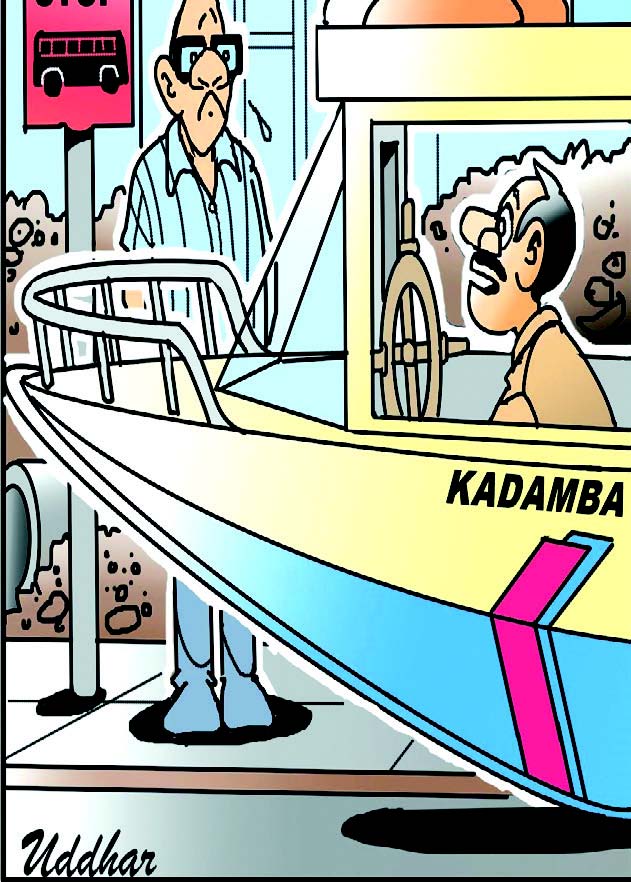PANJIM: The Supreme Court has urged the trial courts to be cautious while granting pre-trial injunctions against the publication of media articles and journalistic pieces in defamation suits, reports Live Law
A bench comprising Chief Justice of India DY Chandrachud, Justices JB Pardiwala and Manoj Misra made these significant observations while setting aside an interim injunction order which directed Bloomberg to take down an article published against Zee Enterprises Ltd.
An interim injunction to take down an article not only impacts the author's right to publish but also the public's right to know, reminded the Court.
"Significantly, in suits concerning defamation by media platforms and/or journalists, an additional consideration of balancing the fundamental right to free speech with the right to reputation and privacy must be borne in mind. The constitutional mandate of protecting journalistic expression cannot be understated, and courts must tread cautiously while granting pre-trial interim injunctions," the Court stated.
The Court, in the case of Bloomberg Television Production Services India Pvt Ltd and others v. Zee Entertainment Enterprises Ltd, stated that the three-fold tests for grant of interim relief - (i) a prima facie case, (ii) balance of convenience and (iii) irreparable loss or harm -must not be applied mechanically, to the detriment of the other party and in the case of injunctions against journalistic pieces, often to the detriment of the public.
Additional consideration of balancing the fundamental right to free speech
"The grant of a pre-trial injunction against the publication of an article may have severe ramifications on the right to freedom of speech of the author and the public's right to know," the Court stated.
"An injunction, particularly ex-parte, should not be granted without establishing that the content sought to be restricted is 'malicious' or 'palpably false'. Granting interim injunctions, before the trial commences, in a cavalier manner results in the stifling of public debate. In other words, courts should not grant ex-parte injunctions except in exceptional cases where the defence advanced by the respondent would undoubtedly fail at trial. In all other cases, injunctions against the publication of material should be granted only after a full fledged trial is conducted or in exceptional cases, after the respondent is given a chance to make their submissions," the Court explained.
While granting ad-interim injunctions in defamation suits, the potential of using prolonged litigation to prevent free speech and public participation must also be kept in mind by courts."
In the instant case, the Supreme Court noted that the trial judge does not discuss, even cursorily, the prima facie strength of the plaintiff's case, nor does it deal with the balance of convenience or the irreparable hardship that is caused.
Appellate Courts must interfere if interim injunctions are granted arbitrarily
The grant of an interim injunction is an exercise of discretionary power and the appellate court will usually not interfere with the grant of interim relief. However the appellate courts must interfere with the grant of interim relief if the discretion has been exercised “arbitrarily, capriciously, perversely, or where the court has ignored settled principles of law regulating the grant or refusal of interlocutory injunctions.
The Supreme Court faulted the High Court also for not interfering with the trial court's order. "This being a case of an injunction granted in defamation proceedings against a media the impact of the injunction on the constitutionally protected right of free speech further warranted intervention," the Court stated.
Entities with vast resources use litigation to prevent public from knowing about their operations: SC
PANJIM: The Supreme Court urged the trial courts to take note of the trend of SLAPP (Strategic Litigation Against Public Participation) whereby entities with vast economic resources use litigation to prevent the public from knowing about their operations involving public interest, Live Law, the premier legal portal covering the courts reported on SLAPP Suits.
The Supreme Court bench stated, "Increasingly, across various jurisdictions, the concept of 'SLAPP Suits' has been recognized either by statute or by courts. The term 'SLAPP' stands for 'Strategic Litigation against Public Participation' and is an umbrella term used to refer to litigation predominantly initiated by entities that wield immense economic power against members of the media or civil society, to prevent the public from knowing about or participating in important affairs in the public interest. We must be cognizant of the realities of prolonged trials. The grant of an interim injunction, before the trial commences, often acts as a 'death sentence' to the material sought to be published, well before the allegations have been proven.
